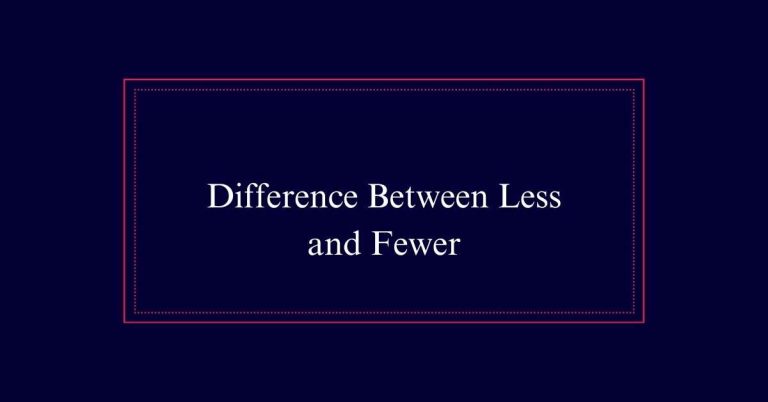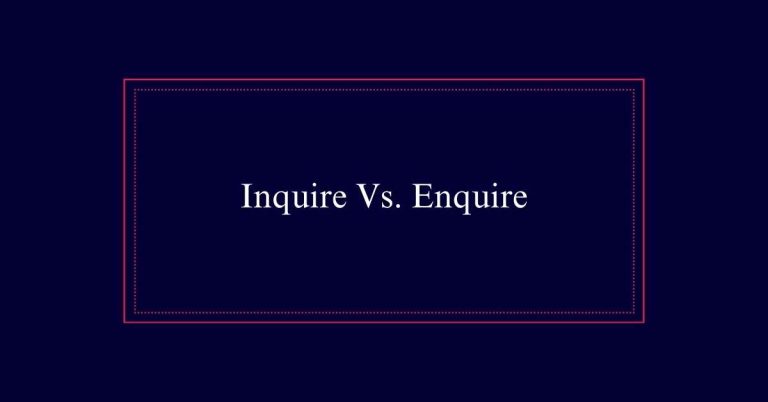Learned or Learnt?
The choice between “learned” and “learnt” depends on regional preferences. “Learned” is more common in American English, while “learnt” is frequently used in British English. However, global trends show that “learned” is becoming increasingly popular due to its simplicity and influence from American culture. Both forms are correct as the past tense and past participle of “learn.” Educational systems and technological advancements also favor the usage of “learned.”
Differences Between ‘Learned’ and ‘Learnt’
The differences between ‘learned’ and ‘learnt’ primarily arise from their usage in American and British English, respectively. Both words serve as the past tense and past participle forms of the verb ‘to learn,’ carrying identical meanings. ‘Learned’ is the preferred spelling in American English, while ‘learnt’ is more common in British English.
Despite their regional preferences, both forms are grammatically correct and interchangeable in meaning. However, ‘learned’ is also used as an adjective to describe someone with extensive knowledge, pronounced as two syllables: LER-ned.

Globally, the trend leans towards adopting ‘learned,’ influenced by the dominance of American English.
Usage in British and American English
In British English, ‘learnt’ is the commonly used past tense form of ‘learn,’ while American English prefers ‘learned.’ These variations reflect broader differences between the two dialects.
In the UK, ‘learnt’ is widely accepted in both spoken and written communication. Conversely, in the United States, ‘learned’ is the standard form and appears more frequently in texts and conversations. Despite these regional preferences, both forms are understood globally.
The influence of American media has led to increased acceptance of ‘learned’ in other English-speaking regions. However, ‘learnt’ remains prevalent in British English and other Commonwealth countries.
Past Tense and Past Participle Forms
Both ‘learned’ and ‘learnt’ serve as the past tense and past participle forms of ‘learn.’ This means they can be used interchangeably to indicate that someone has acquired knowledge or a skill in the past.
For example, ‘She learned to play the piano last year’ and ‘She learnt to play the piano last year’ are both correct. The choice between ‘learned’ and ‘learnt’ often depends on regional preferences. ‘Learned’ is mainly used in American English, while ‘learnt’ is more common in British English.
Global Trend Towards ‘Learned’
Despite the primarily use of ‘learned’ and ‘learnt,’ there is a noticeable global trend favoring ‘learned.’ This shift is mainly driven by the pervasive influence of American English. Media, technology, and entertainment industries, primarily based in the United States, have contributed to this change. As a result, ‘learned’ is becoming more common not only in American English but also internationally.
The trend reflects a broader movement towards standardizing English usage globally. Additionally, the simplification of irregular verbs, such as opting for ‘learned’ over ‘learnt,’ aligns with this trend. This global preference for ‘learned’ illustrates how language evolves, influenced by cultural and technological factors, leading to more uniform usage across different English-speaking regions.
Examples of ‘Learned’ Usage
Examples of ‘learned’ usage highlight its prevalence in both casual and formal contexts. In American English, ‘learned’ is often used in everyday conversations.
For instance, ‘She learned to cook from her grandmother’ shows a common, informal example. In professional settings, it appears frequently. Consider the sentence, ‘The committee learned about the new policy changes yesterday.’ This usage is clear and formal.
Additionally, news articles often use ‘learned’ to convey past information, such as ‘The organization learned of the incident last week.’ These examples demonstrate how ‘learned’ is versatile and widely accepted in various contexts, reinforcing its dominance, especially in American English.
Examples of ‘Learnt’ Usage
In British English, ‘learnt’ is frequently used in both spoken and written communication. This variant is common in everyday language and literature.
Here are some examples to illustrate its usage:
- ‘She learnt the piano at an early age, showing remarkable talent.’
- ‘They have learnt valuable lessons from their past mistakes.’
- ‘After the experiment, the scientists learnt more about the behavior of the cells.’
These examples highlight the prevalence of ‘learnt’ in British English. It is used interchangeably with ‘learned’ in contexts where the past tense or past participle of ‘learn’ is required.
‘Learned’ as an Adjective
While ‘learnt’ is common in British English, ‘learned’ serves a unique role as an adjective, describing someone with extensive knowledge or education. It is pronounced with two syllables, LER-ned.
Within this particular scenario, ‘learned’ is not interchangeable with ‘learnt.’ For instance, one might refer to a ‘learned scholar’ or a ‘learned professor.’ This usage highlights the individual’s expertise and scholarly achievements.
The adjective form of ‘learned’ is prevalent in both British and American English, though its pronunciation and specific usage may vary. It is crucial to distinguish between the past tense form of ‘learned’ and its adjectival form to guarantee clarity and precision in communication.
Influence of American English
The dominance of American English has greatly influenced global language norms, including the preference for ‘learned’ over ‘learnt.’ This shift is largely due to the widespread reach of American media, technology, and education systems. As American English continues to permeate global communication, it sets language trends that others follow.
Media Influence: American movies, TV shows, and news are consumed worldwide, spreading American English usage.
Educational Materials: Many educational resources and textbooks are published in American English, reinforcing its norms.
Technology and Internet: Major tech companies and online platforms often use American English, which users globally adopt.
Impact on Spelling and Pronunciation
American English’s influence has led to significant changes in spelling and pronunciation across various English-speaking regions. One notable impact is the preference for ‘learned’ over ‘learnt.’ This shift reflects broader trends in adopting American spelling conventions. As a result, many English speakers now default to ‘learned’ in writing and speech, simplifying communication.
Pronunciation has also been affected, with the two-syllable form of ‘learned’ (LER-ned) gaining traction in contexts where it serves as an adjective. This standardization aligns with the American tendency to regularize verb forms, making language more uniform.






